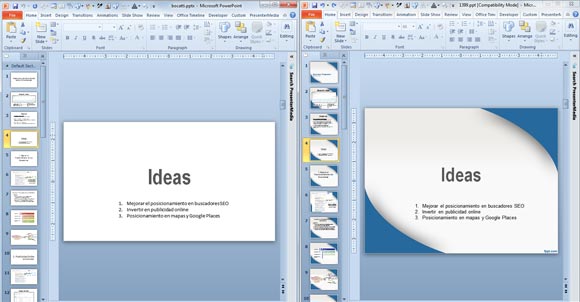

Both of these options contain presets and, if you’re using the latest version of PowerPoint, you’ll see an additional option to customize the fonts or the styles.
:max_bytes(150000):strip_icc()/jeopardy-powerpoint-template-1af4b20636404fe19eb5c7ead0fa49a7.png)
To apply a custom background, click Apply to All. If you choose to do it via Format Background, its panel will appear on the right side of the screen.

When a user applies a theme in the Change the look wizard, the wizard also updates a theme named Current in the Composed Looks list and the design gallery. For more information, see ApplyTo(SPWeb, Boolean). You can choose any of the presets or click Format Background, where you’ll be able to use solid colors, gradients, images or patterns as background. The shareGenerated parameter must be set to true if you intend the themed files to be shared. To change the color of the background, click the Variants drop-down arrow and click Background Styles.You can see a little preview in the top-right corner of this window. A new window will open, where you can select the colors that best suit your needs. If you want to apply a specific palette to the presentation, click Customize Colors. If you want to change the color palette, click the Variants drop-down arrow, select Colors and choose any of the presets.If the theme contains color variations, you’ll see them in the Variants group. Let’s see how we can edit the colors of a theme: Depending on the theme, it could have color variations or different palette presets that you can choose to change the color of the elements in your presentation.


 0 kommentar(er)
0 kommentar(er)
